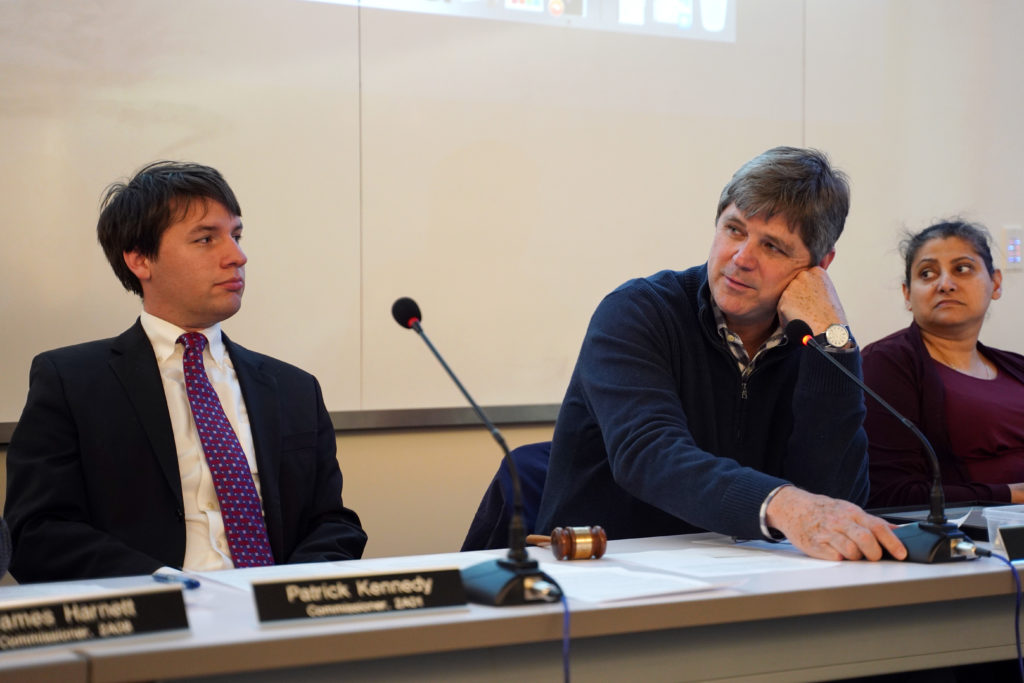Updated: April 9, 2019 at 11:02 a.m.
A local governing group could soon have more influence on the District’s long-term plans for the city.
A bill introduced to the D.C. Council last week would require Advisory Neighborhood Commissions to make recommendations about the District’s Comprehensive Plan, a 20-year initiative introduced in 2006. Commissioners representing Foggy Bottom and the West End said the bill would ensure that neighborhood interests, like affordable housing and infrastructure, are represented in D.C.’s long-term strategic plans.
The measure, introduced by at-large Councilmember Robert White, mandates that the Council considers ANC recommendations on city planning matters, ensuring that individual neighborhoods have a voice when the plan is reviewed by the Council every four years. In the past, ANCs have not been required to provide recommendations to the Comprehensive Plan, but some wards have passed resolutions that include suggestions.
The bill is co-sponsored by councilmembers Brianne Nadeau and Anita Bonds and is set to have a committee hearing and a Council vote early next month. White did not return multiple requests for comment.
Patrick Kennedy, a commissioner representing Foggy Bottom and the West End, said the bill is a “necessary and corrective” effort to ensure that the Office of Planning considers recommendations from ANCs. He said the Office of Planning had originally intended to hold meetings in D.C. neighborhoods to discuss the Comprehensive Plan last year, but officials “walked back on that commitment” and instead skipped to a Council hearing where citizens voiced concerns about the availability of affordable housing units.
He said the lengthy hearing and public backlash could have been avoided if ANCs had been consulted before the plan was presented for approval.
“By Councilmember White introducing a bill prohibiting them from skipping over this step in the future, it will lead to better engagement between the ANC and the Office of Planning and allow what comes forward to the Council to be not only more transparent but hopefully more fully fleshed out,” he said.
Kennedy said affordable housing should be the top priority in the Comprehensive Plan moving forward because the costs of housing both in the District and in Ward 2, which includes Foggy Bottom, have skyrocketed. The creation of more affordable housing units was not initially included when the Comprehensive Plan was revised last year, but officials eventually decided to mention the issue after nearly residents complained about the issue.
“Affordable housing affects virtually everyone in this city,” Kennedy said. “We are approaching crisis levels when it comes to the ability of young people to afford their first home, young people to afford their rent, older people to be able to afford to stay in homes or apartments that they have lived in for many years.”
Commissioner and junior James Harnett said he is “very excited” that the ANC will have more influence in amending the Comprehensive Plan but is worried that some ANCs might try “to act in their own self interest” instead of working to increase affordable housing across the city.
“There are going to be some communities that don’t want to build more affordable housing and reform the zoning codes so that more affordable housing is built,” he said.
ANC Chairman William Kennedy Smith said the Foggy Bottom and West End ANC will continue to pass resolutions featuring recommendations about city planning to the Council. But he said the new legislation would ensure that commissioners’ voices are given proper consideration during the formal city planning process.
“Every time there’s an opportunity for us to have input, we will produce a list of recommendations, and we will provide that list,” he said. “Hopefully, through this legislation, we will be confident that that will be given great weight.”



